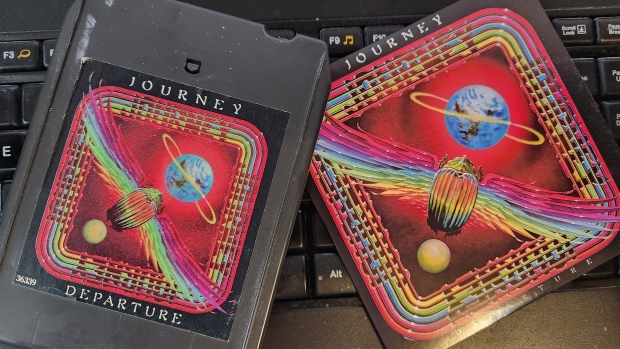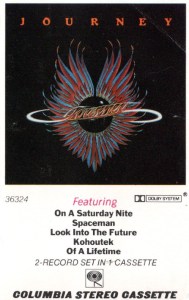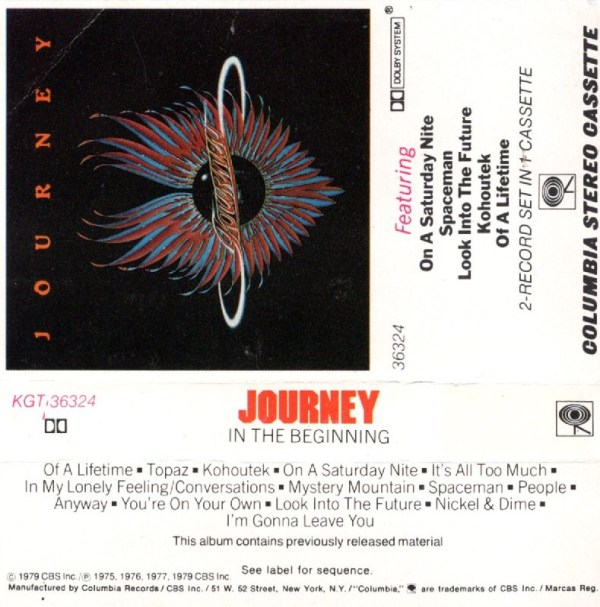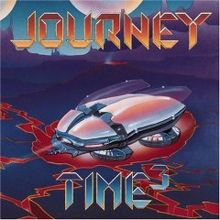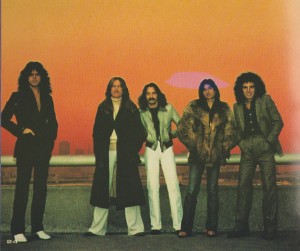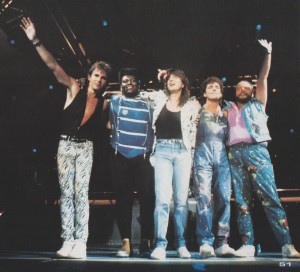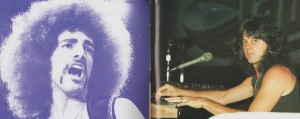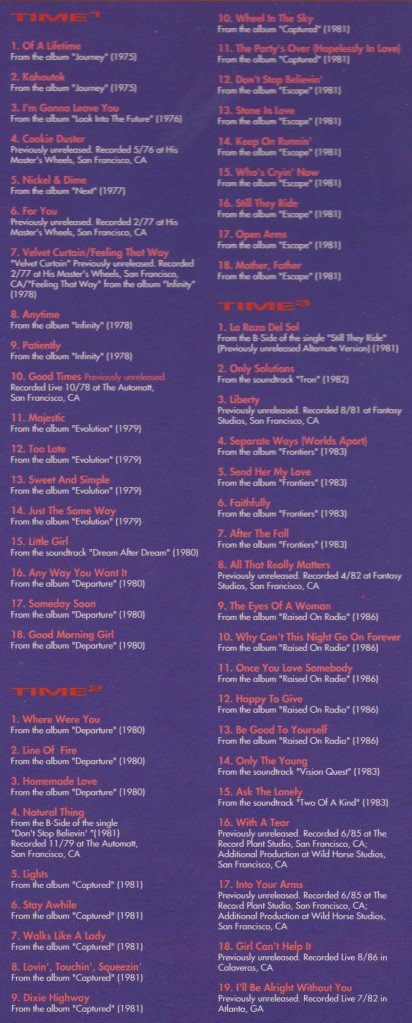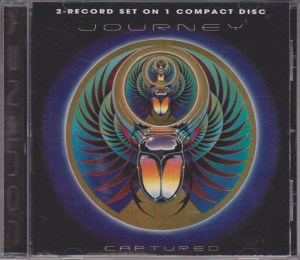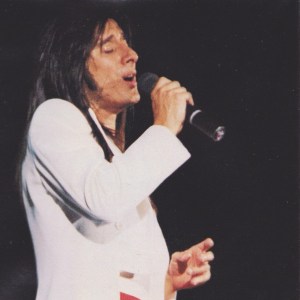 JOURNEY – Departure (1980 CBS 8-track, Remastered 2010 Sony CD)
JOURNEY – Departure (1980 CBS 8-track, Remastered 2010 Sony CD)
CD from the set 3 Original Album Classics
Changes were afoot in Journey, and alluded to on Departure. Aside from the Japan-only soundtrack Dream, After Dream, this was the last stand for Gregg Rolie. While he would also appear one more time on the Captured live album, he was not there for the new studio track included. For all intents and purposes, Departure is his “last album”, to use an inaccurate but easy term. For the man who once was Journey’s only lead singer, Departure only has one of Rolie’s lead vocals, and only two co-writes. (In the discography, Departure directly followed 1979’s compilation of early material, In the Beginning, featuring early material and a large number of Rolie vocals.)
With Steve Perry leading the charge, Departure commences with the party anthem “Any Way You Want It”. Those who don’t know it, know it. It has been featured in the Simpsons, twice! A rare honour, and mega-exposure, for good reason. Perry’s impeccably arranged chorus is irresistible. Rolie’s organ is the perfect accompaniment to keep in the realm of classic rock and roll. Of course Schon’s solo is also tasty as heck, but this song is know for its party-hardy chorus. For those who like to dig deeper, Ross Valory’s pulsing bassline goes underappreciated today, and Steve Smith’s smooth cymbal work is often taken for granted.
A surprising twist is taken on track two, the laid back blues pulse of “Walk Like A Lady”. Sounds like Smith is playing with brushes, and Neal really plays it classy. Then, a jab of organ and the players are off to indulge themselves. “Oooh yeah!” shouts Perry, as if enjoying the jamming himself. Soulful harmony vocals by the band really take this out on an authentic note.
Third song, third musical direction: power balladeering! Rolie sings a duet with Perry backing him on “Someday Soon”, a melancholy but punchy ballad. Though it was not a single, perhaps it should have been. There’s a cool, unique angelic vocal section near the end that nicely complements Steve Smith’s drum fills.
“People and Places” is like an exercise in creative vocal arrangements, if not showing off. Neal Schon sings lead with Steve Perry on this complex track. It’s more like the Dream, After Dream material than a lot of Departure. If only the modern Journey were unafraid to create more unique music like this. It still has room for a powerful melody and some warming cascades of guitar. This song moves directly into “Precious Time”, which has a vibe like the still-in-the-future track “Liberty”. Lyrically it foreshadows the “Line of Fire” on side two, and also has Rolie on harmonica. It turns into a more typical Journey rocker by the midpoint. Lots of tasty Schon guitars to be savoured here.
 Unusually for an album of 1980, Departure had 12 tracks: five on the first side, and seven on the second. This is where we’d flip.
Unusually for an album of 1980, Departure had 12 tracks: five on the first side, and seven on the second. This is where we’d flip.
The big concert rocker “Where Were You” kicks off the back end of Departure. This one pounds the pavement with beats, riffs and boppin’ piano. It too could have been a single, though it did open their concerts on tour. Then, a completely different mood drops: “I’m Cryin'” hits like a cold wave of grief, though not without its musical thrills. Soon it’s over and the rockin’ “Line Of Fire” brings the party back. There’s no better way to describe it than a fast, good time rock and roll song. “So don’t go sayin’ Steve is a liar!” warns Perry to some young lady who done him wrong. “Bye bye bye Susie, so long girl!” (He sure got over what was bothering him on “I’m Cryin'” pretty fast.) Take note of Schon’s technical solo work here.
“Departure” / “Good Morning Girl” is softly progressive, with strings and light guitar, and little else. This is over quickly, and then it’s the ballad “Stay Awile”, one of the sweetest songs Steve Perry or Journey have ever done. Once again, listen to the bass and drums for a different perspective. Perhaps the only thing better than Perry’s lead vocals are when he does it live.
Fortunately, Journey had the wisdom to end the album on a rocker: “Homemade Love”. Some of Perry’s worst words accompany some of his most acrobatic singing. Still, at least it’s a good jam to go out on, with some fretboard burning fingerwork by Neal.
 Interesting, the 8-track tape might have what would be called a bonus track here: a reprise of “Line of Fire”. It’s here mostly for timing reasons; there are no songs split between tracks anywhere on this album. So, 8-track buyers got an uninterrupted listen, plus a reprise of “Line of Fire”. Information is scarce, but it would be fun to hear the tape this way,
Interesting, the 8-track tape might have what would be called a bonus track here: a reprise of “Line of Fire”. It’s here mostly for timing reasons; there are no songs split between tracks anywhere on this album. So, 8-track buyers got an uninterrupted listen, plus a reprise of “Line of Fire”. Information is scarce, but it would be fun to hear the tape this way,
On remastered CD, we got some slightly more interesting bonus tracks than 8-track offered. “Natural Thing” is a bluesy B-side, which was later released as the B-side to “Don’t Stop Believin'”. Chronologically though, it is from this era and is as strong as any similar material on the album. Funny how some tracks don’t make the cut when others do. If you were told this was a standalone single, you wouldn’t have a reason to doubt it. The CD also includes “Little Girl” from Dream, After Dream which is a difficult album to find and Rolie’s studio farewell. It is a string-laden power ballad, very progressive, and far darker than anything on Departure.
Departure features an unusually rougher sound than other Journey albums. The production seems unpolished despite the complexities of some tracks, with the vocals sometimes occupying a strange space that’s not quite in front of the music. Still, a classic album is a classic album and there are so few flaws with Departure that it’s easy to dismiss them all.
5/5 stars
